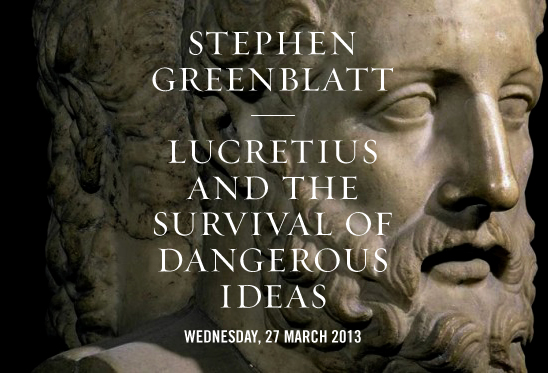Stephen Greenblatt – Lucretius and the Survival of Dangerous Ideas

Stephen Greenblatt, John Cogan University Professor of the Humanities at Harvard University, is a winner of the Pulitzer Prize and winner of the National Book Award for The Swerve: How the World Became Modern. In a lecture based on The Swerve, Greenblatt will ask why the entirely unacceptable ideas articulated in Roman philosopher Lucretius’ De rerum natura were allowed to circulate during the Renaissance.
Greenblatt is the author of twelve books, including The Swerve: How the World Became Modern (Italian trans. Il Manoscritto, Rizzoli); Shakespeare's Freedom; Will in the World: How Shakespeare Became Shakespeare (Italian trans. Vita, arte e passion di William Shakespeare, capocomico. Come Shakespeare divenne Shakespeare, Einaudi); Hamlet in Purgatory (Italian trans. Amleto in purgatorio. Figure dell’aldilà, Carocci Editore); Marvelous Possessions (Italian trans. Meraviglia e possesso. Lo stupore di fronte al nuovo mondo, Il Mulino); andRenaissance Self-Fashioning. He is General Editor of The Norton Anthology of English Literature and of The Norton Shakespeare, has edited seven collections of criticism, and is a founding editor of the journal Representations. He recently received the 2013 Premio di storia letteraria Natalino Sapegno and is the first American to have received this award.
The lecture will held be in English with simultaneous translation into Italian available. The event is free and open to the public. Seats are available on a first-come, first-served basis. Book signing and a reception will follow.
This lecture is made possible, in part, by the generous support of the Embassy of the United States of America.